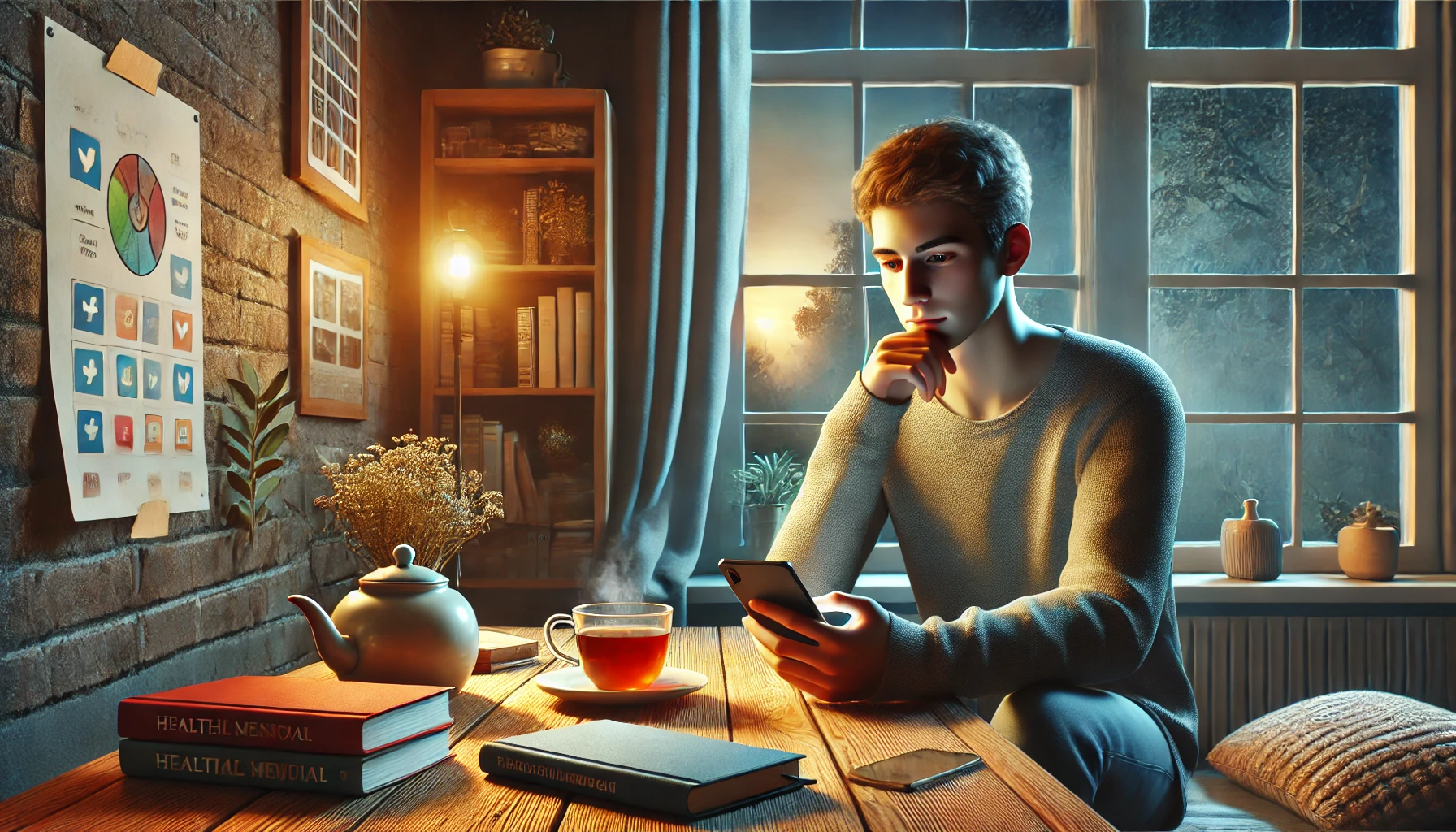Social media has revolutionized how we communicate, connect, and consume information. Platforms like Instagram, Facebook, Twitter, and TikTok have become an integral part of daily life, offering both opportunities and challenges. While they provide a sense of community, entertainment, and knowledge, excessive use can negatively impact mental health. Understanding these effects and learning how to use social media in a balanced way is crucial for maintaining well-being.
How Social Media Affects Mental Health
1. Increased Anxiety and Depression
Numerous studies have linked excessive social media use to increased levels of anxiety and depression. Constant exposure to curated, often unrealistic portrayals of others’ lives can lead to social comparison, reducing self-esteem and fostering feelings of inadequacy. The fear of missing out (FOMO) also contributes to anxiety, making users feel left out or less accomplished compared to their peers.
2. Addiction and Dopamine Dependency
Social media platforms are designed to be addictive. The instant gratification from likes, comments, and shares triggers dopamine release in the brain, reinforcing compulsive use. Over time, people may become dependent on these digital interactions for validation, leading to excessive screen time and neglect of real-world activities.
3. Sleep Disruptions
The blue light emitted by screens can interfere with melatonin production, making it harder to fall asleep. Additionally, late-night scrolling increases mental stimulation, making it difficult to relax. Poor sleep quality is linked to mood disorders, reduced concentration, and overall mental exhaustion.
4. Cyberbullying and Online Harassment
The anonymity of the internet allows negative behavior to flourish. Cyberbullying and online harassment can lead to severe emotional distress, particularly for young users. Victims may experience low self-worth, anxiety, and even suicidal thoughts due to online attacks.
5. Reduced Attention Span and Productivity
Constant notifications, endless scrolling, and short-form content can decrease the ability to focus. Social media encourages multitasking, which reduces efficiency and makes it harder to engage in deep, meaningful work or conversations.
How to Use Social Media in a Healthy and Balanced Way
1. Set Time Limits
Limiting social media usage can significantly improve mental well-being. Use apps that track screen time or set daily limits to ensure you’re not spending excessive hours online. Consider scheduling “offline hours” each day to focus on personal relationships, hobbies, and self-care.
2. Curate Your Feed Wisely
Unfollow accounts that make you feel insecure or anxious. Instead, follow pages that promote positivity, mental health awareness, and educational content. A well-curated feed can enhance motivation and happiness instead of fueling negative emotions.
3. Avoid Social Comparison
Remember that most social media content is carefully edited and does not reflect real life. People often share highlights rather than struggles. Focus on your own journey and achievements rather than comparing yourself to others.
4. Engage in Meaningful Interactions
Instead of passively scrolling, try to engage with content in a meaningful way. Commenting on posts, joining supportive communities, and having thoughtful conversations can make social media a more positive and fulfilling experience.
5. Take Digital Detox Breaks
Occasionally disconnecting from social media allows you to reset your mind. A weekend without social media or a “screen-free” day each week can help you regain focus on real-life experiences.
6. Be Mindful of Mental Health Signs
If social media use is causing stress, anxiety, or depression, it may be time to reassess your habits. Seek professional help if needed and prioritize activities that promote emotional well-being, such as exercise, meditation, and in-person social interactions.
Conclusion: Finding a Healthy Balance
Social media is neither entirely good nor bad—it depends on how we use it. By setting boundaries, curating content mindfully, and engaging in meaningful interactions, we can enjoy the benefits of social media while protecting our mental health. Balance is key: use technology as a tool to enhance your life, not as a source of stress or comparison.
